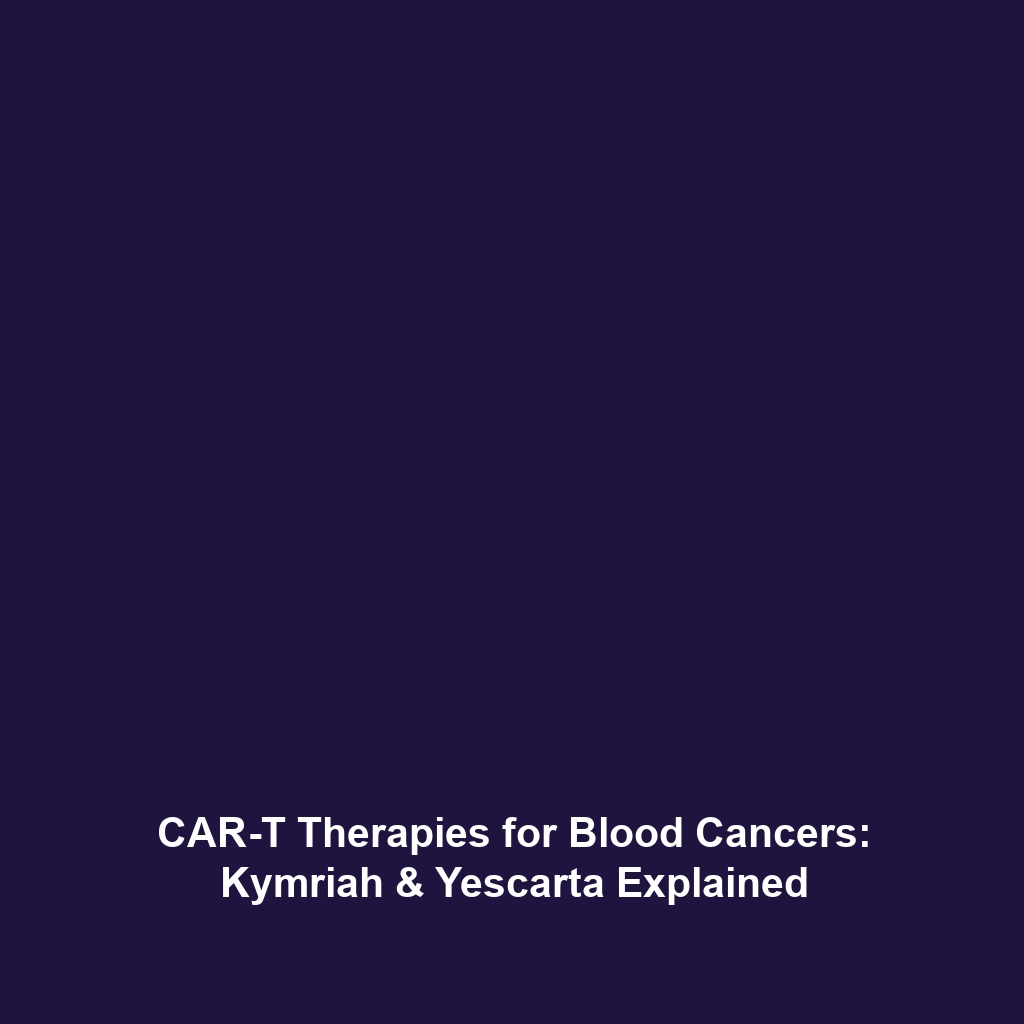Approved CAR-T Therapies for Blood Cancers: A Breakthrough in Immunotherapy
Introduction:
Approved CAR-T therapies, such as Kymriah and Yescarta, represent a revolutionary approach in the treatment of blood cancers, including leukemia and lymphoma. Leveraging the power of the body’s immune system, these therapies have shown significant potential in providing new hope for patients who have exhausted other treatment options. Understanding the significance of CAR-T therapy within the broader context of Immunotherapy & Cancer is essential as it reshapes treatment paradigms and patient outcomes.
Key Concepts of CAR-T Therapy
CAR-T (chimeric antigen receptor T-cell) therapy is a personalized treatment that modifies a patient’s own T cells to better recognize and attack cancer cells. Here are some key principles:
- Personalization: CAR-T therapies are tailored to individual patients, enhancing their immune response against specific targets on cancer cells.
- Mechanism of Action: By engineering T cells to express CARs, these therapies enable the immune system to identify and eliminate malignant cells effectively.
- Applications in Blood Cancers: CAR-T therapy has shown remarkable efficacy in treating various forms of leukemia and lymphoma, showcasing its vital role in Immunotherapy & Cancer.
Applications and Real-World Uses
The applications of approved CAR-T therapies for blood cancers are profound, transforming treatment approaches and patient lives. Key applications include:
- Kymriah: Approved for acute lymphoblastic leukemia (ALL) and large B-cell lymphoma, Kymriah has been pivotal in achieving remission for many patients.
- Yescarta: Used for treating adult patients with high-grade B-cell non-Hodgkin lymphoma, Yescarta demonstrates the effectiveness of CAR-T therapy in challenging cancer cases.
These therapies exemplify how CAR-T therapies are used in Immunotherapy & Cancer, significantly improving survival rates and quality of life for patients.
Current Challenges in CAR-T Therapy
Despite the successes, there are several challenges and limitations associated with studying and applying CAR-T therapies for blood cancers:
- Cost: The high expenses related to CAR-T therapy can limit accessibility for many patients.
- Side Effects: Patients may experience severe side effects, such as cytokine release syndrome (CRS) and neurotoxicity.
- Limited Durability: In some cases, patients may experience relapse, necessitating further treatment.
Future Research and Innovations
Ongoing research is vital for enhancing CAR-T therapies and addressing their challenges. Key focus areas for future research include:
- Next-Generation CAR-T Cells: Innovations are underway to develop CARs that target multiple antigens simultaneously, improving efficacy.
- Combination Therapies: Research is exploring the potential of combining CAR-T therapies with other treatment modalities to enhance outcomes.
- Longer Lasting Effects: Efforts are being made to improve the durability of responses, potentially leading to longer remissions.
Conclusion
Approved CAR-T therapies for blood cancers, exemplified by Kymriah and Yescarta, mark a significant advancement in the field of Immunotherapy & Cancer. While challenges remain, continued research and innovation are paving the way for more effective treatments. For further reading on CAR-T therapies and their implications in oncology, visit our detailed guides on advancements in immunotherapy and other cancer treatments.
